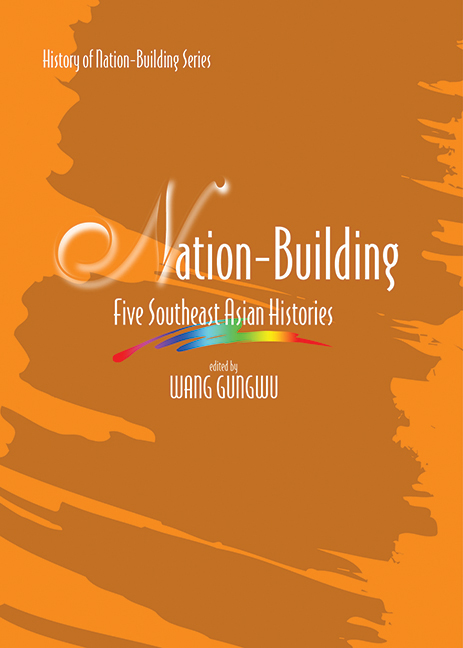Book contents
- Frontmatter
- Contents
- Preface
- The Contributors
- Chapter One Contemporary and National History: A Double Challenge
- Chapter Two Nation and State in Histories of Nation-Building, with Special Reference to Thailand
- Chapter Three Rethinking History and “Nation-Building” in the Philippines
- Chapter Four Writing the History of Independent Indonesia
- Chapter Five Ethnicity in the Making of Malaysia
- Chapter Six Historians Writing Nations: Malaysian Contests
- Chapter Seven Writing Malaysia's Contemporary History
- Chapter Eight Forging Malaysia and Singapore: Colonialism, Decolonization and Nation-Building
- Chapter Nine Nation-Building and the Singapore Story: Some Issues in the Study of Contemporary
- Chapter Ten Nation and Heritage
- Index
Chapter Three - Rethinking History and “Nation-Building” in the Philippines
Published online by Cambridge University Press: 21 October 2015
- Frontmatter
- Contents
- Preface
- The Contributors
- Chapter One Contemporary and National History: A Double Challenge
- Chapter Two Nation and State in Histories of Nation-Building, with Special Reference to Thailand
- Chapter Three Rethinking History and “Nation-Building” in the Philippines
- Chapter Four Writing the History of Independent Indonesia
- Chapter Five Ethnicity in the Making of Malaysia
- Chapter Six Historians Writing Nations: Malaysian Contests
- Chapter Seven Writing Malaysia's Contemporary History
- Chapter Eight Forging Malaysia and Singapore: Colonialism, Decolonization and Nation-Building
- Chapter Nine Nation-Building and the Singapore Story: Some Issues in the Study of Contemporary
- Chapter Ten Nation and Heritage
- Index
Summary
Distinguished American feminist scholar Joan W. Scott, reflecting on what now counts as “common sense” in her discipline, has argued that “[h]istory is in the paradoxical position of creating the objects it claims only to discover” (2001, p. 85). The fact that historians include and exclude as well as organize and present their “materials” or “data” exposes the interpretive practices that not only underpin their field of study, but constitute the knowledge produced by that field as knowable and intelligible in the first place. Wide-ranging critiques of historical representation (Foucault 1971; White 1973, 1987, and 1999; LaCapra 1983 and 1987) have placed interpretation at the centre of history understood in its double sense as both object of study and verbal account. No longer can interpretation be treated as completely separate and distinct from reality, since interpretations help define and shape that reality. Neither can “materials” or “data” be treated as free-floating and self-contained information awaiting discovery or recovery, since they are embedded within complex, often past systems of thought and action that historians can ill afford to either ignore or discount.
To write a history of contemporary Philippines is not — and, at a time when disciplines and their boundaries are subject to critical interrogation, can no longer be — simply a matter of writing about the Philippines with particular reference to its past. The historian must now also attend to the conceptual parameters within which a “history” of “the Philippines” is conceivable and practicable as a scholarly undertaking. This entails analysing the ways in which “the Philippines” was imagined and consolidated as a “national” community with “its” own history (Anderson 1991 [1983]; Scott 2001, p. 97). It also demands that historians acknowledge the role that their own project plays in structuring — intellectually and materially — the history of that nation.
- Type
- Chapter
- Information
- Nation BuildingFive Southeast Asian Histories, pp. 39 - 68Publisher: ISEAS–Yusof Ishak InstitutePrint publication year: 2005

